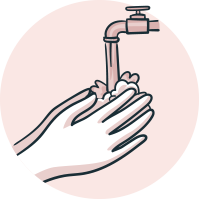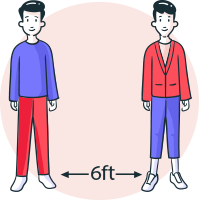COVID-19 OUTBREAK
Coronaviruses are a group of viruses belonging to the family of Coronaviridae, which infect both animals and
humans. Human coronaviruses can cause mild disease similar to a common cold, while others cause more severe
disease (such as MERS - Middle East Respiratory Syndrome and SARS – Severe Acute Respiratory Syndrome). A
new coronavirus that previously has not been identified in humans emerged in Wuhan, China in December 2019.
Signs and symptoms include respiratory symptoms and include fever, cough and shortness of breath. In more
severe cases, infection can cause pneumonia, severe acute respiratory syndrome and sometimes death. Standard
recommendations to prevent the spread of COVID-19 include frequent cleaning of hands using alcohol-based hand
rub or soap and water; covering the nose and mouth with a flexed elbow or disposable tissue when coughing and
sneezing; and avoiding close contact with anyone that has a fever and cough.
WHO is working closely with global experts, governments and partners to rapidly expand scientific knowledge on
this new virus and to provide timely advice on measures to protect people’s health and prevent the spread of this
outbreak.
Health workers are at the front line of any outbreak response and as such are exposed to hazards that put them
at risk of infection with an outbreak pathogen (in this case COVID-19). Hazards include pathogen exposure, long
working hours, psychological distress, fatigue, occupational burnout, stigma, and physical and psychological
violence.
 COVID-19
COVID-19



